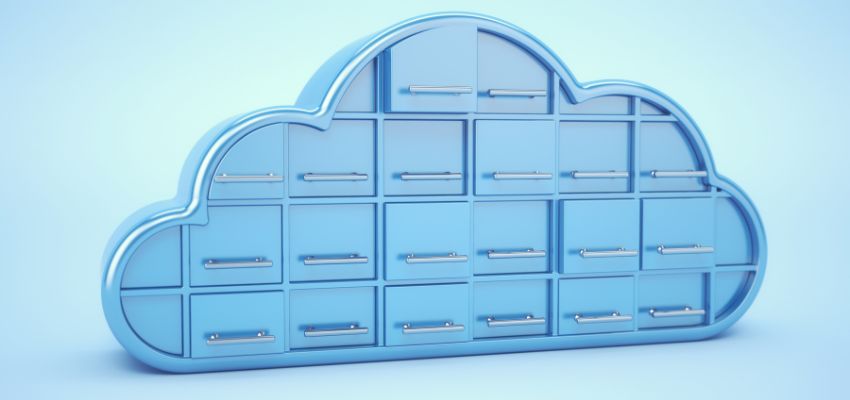Unlocking the Future of Finances with Cloud-Based Accounting Software

In today’s fast-paced business environment, efficiency and adaptability are essential for success. That’s where cloud-based accounting software comes into play—offering innovative solutions that allow businesses to manage their finances seamlessly and securely from anywhere in the world. This article explores various aspects of cloud-based accounting, including its benefits, how to use it effectively, comparisons with traditional systems, and expert advice.

Understanding Cloud-Based Accounting Software
Cloud-based accounting software is a type of financial management tool hosted on remote servers, accessible via the internet. Unlike traditional accounting software installed on individual machines, cloud solutions enable users to access their financial data anytime, anywhere, providing flexibility and convenience.
Benefits of Cloud-Based Accounting Software
The advantages of adopting cloud-based accounting systems extend far beyond simple accessibility. Here are some key benefits:
- Real-Time Updates: With cloud-based accounting, your financial records are updated in real-time. This ensures you always have accurate data at your fingertips, allowing for timely decision-making.
- Cost-Effectiveness: Traditional accounting methods often require substantial investments in hardware and software. Conversely, cloud-based solutions typically follow a subscription model, making them more affordable for small to medium-sized enterprises.
- Enhanced Security: Leading cloud accounting providers prioritize security, employing encryption and regular backups to protect sensitive financial information against breaches or accidental loss.
- Scalability: As your business grows, so do your accounting needs. Cloud-based software can easily scale up, accommodating additional users and enhanced functionalities without significant disruptions.
Key Features to Look For
When selecting a cloud-based accounting software, consider the following features:
- User-Friendliness: The most effective software should have an intuitive interface, making it easy for both finance professionals and non-accountants to navigate.
- Integration Capabilities: Ensure the software integrates seamlessly with other tools you use, such as payroll systems, CRMs, and inventory management solutions.
- Customer Support: Reliable customer service is crucial when issues arise. Look for providers offering 24/7 support, comprehensive online resources, and community forums.
- Mobile Accessibility: Many cloud accounting platforms offer mobile applications, allowing you to manage finances while on the go, eliminating the need to be tethered to a desk.
How to Use Cloud-Based Accounting Software Effectively
Using cloud-based accounting software can streamline your financial processes significantly if utilized correctly. Below are steps to maximize its potential in your organization:
Setting Up Your Account
Before diving into the features of cloud-based accounting software, it’s crucial to set it up accurately.
- Choose the Right Software: Research options based on your business size, industry, and specific needs. Popular choices include QuickBooks Online, Xero, and FreshBooks.
- Data Migration: If transitioning from a traditional system, carefully plan the migration of existing data. Most platforms provide guidelines or professional services to assist in this process.
- Configure Settings: Customize settings to align with your business structure, including tax rates, currencies, and user roles.
Managing Daily Transactions
Once your account is set up, daily transaction management becomes straightforward:
- Record Sales and Expenses: Use the software to log all financial transactions promptly. Many programs allow integration with bank accounts, automating this process to minimize manual entry errors.
- Track Invoices and Payments: Efficiently track outstanding invoices, set reminders for late payments, and automate billing processes when possible.
- Generate Reports: Regularly generate profit and loss statements, balance sheets, and cash flow reports to monitor your financial health closely.
Collaboration and Communication
Another significant advantage of cloud-based accounting software lies in facilitating collaboration:
- Multi-User Access: Grant access to different team members while maintaining control over what financial data they can view or edit.
- Real-Time Updates: Utilize the software’s ability to update information in real time, ensuring that everyone involved has access to the latest data.
- Integrated Communication Tools: Leverage built-in communication features to discuss financial matters directly within the platform, reducing the reliance on emails or separate messaging apps.
Comparing Cloud-Based Accounting Software with Traditional Systems
Deciding between cloud-based and traditional accounting software often involves weighing several factors. Here are critical comparisons that highlight the benefits of cloud solutions:
Cost Considerations
Traditional accounting systems often come with substantial initial costs, including purchasing licenses and hardware. In contrast, cloud-based accounting typically operates on a subscription basis, allowing you to spread out costs over time. Moreover, many cloud solutions offer tiered pricing structures, meaning you only pay for the features you need.
Accessibility and Mobility
With traditional software, access is restricted to the computer on which it is installed. This limitation can hinder productivity, especially for businesses with remote employees or multiple locations. Conversely, cloud-based solutions grant access from any device with an internet connection, promoting mobility and flexibility within teams.
Maintenance and Updates
Routine maintenance and updates are often a headache with traditional systems, requiring downtime and IT intervention. In stark contrast, cloud-based accounting software automatically rolls out updates, ensuring your business always uses the latest version without disruptions.
Data Security and Backup Solutions
While concerns about data security persist for both types of software, reputable cloud accounting platforms invest heavily in advanced security measures, such as data encryption and regular backups to secure your financial data. On the other hand, traditional systems often rely on the user’s responsibility for data security, leading to potential vulnerabilities.
Expert Advice for Choosing Cloud-Based Accounting Software
Choosing the right cloud-based accounting software can make a significant difference in your business operations. Below are some expert tips to guide you through the selection process:
Identify Your Specific Needs
Before evaluating different software options, take the time to identify your unique accounting needs. Consider your business size, the complexity of your transactions, and whether you require additional functionalities like payroll, project management, or inventory tracking.
Read Customer Reviews and Testimonials
Researching customer reviews can provide insights into the experiences of others who have used the software. Look for testimonials that indicate ease of use, quality of customer support, and any potential drawbacks.
Take Advantage of Free Trials
Many cloud-based accounting software providers offer free trials to allow prospective users to test their products before committing. Utilize these trials to assess usability, feature sets, and overall compatibility with your business processes.
Evaluate Scalability Options
As your business evolves, your software needs may change. Choose a provider that offers scalability options, allowing you to upgrade your service levels without switching platforms.
Conclusion
In the rapidly evolving landscape of business finance, cloud-based accounting software emerges as a powerful tool that combines accessibility, efficiency, and security. By understanding its features and benefits, businesses can make informed decisions, paving the way for streamlined financial management. Transitioning to a cloud-based solution not only enhances operational capabilities but also positions companies to thrive in an ever-changing market. Embracing these innovative technologies is essential for those seeking a competitive edge in today’s business world.

